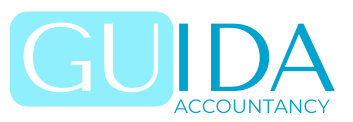When does ‘complimentary’ end, and fee-charging begin?
If you work for yourself, you’re probably familiar with potential clients asking for a “few moments of your time.”
For many self-employed people (me included) requests like these can present a dilemma. Namely, at what point should those “few moments” become a chargeable business transaction?
Here to help
Most people who start their own businesses do so because they want to use their expertise to help people. If you’re this naturally obliging type of person, charging for your help can take some getting used to.
Particularly if you’ve spent so many years doing what you do, that it feels second nature. The very definition of ‘work’ involves a certain amount of effort, so should you really be charging for a solution that only took five minutes to come up with?
Your expertise is your business
As an accountant who works with small and micro businesses, one of the most common questions a potential client will ask me is whether they should register as a sole trader or a limited company.
Although I can usually come up with an answer in around 30 minutes, this is only because of my detailed knowledge of the tax system. That knowledge is part of what my clients pay me for.
If someone asks you a question, it usually means you have expertise that they don’t. This expertise is your business, so it shouldn’t be given away for free… or at least, not if you want your business to be successful!
Offer a ‘discovery call’ to meet people half-way
When you start a new conversation with a potential client, it can feel incredibly tempting to offer more for free than you should.
Not only do you want to prove that you can help them, but perhaps you’ll also secure more work from that client in future.
That’s why offering a complimentary, half-hour ‘discovery call’ is a good idea. You can use the call to establish your expertise and find out how you can help, and the client can use it to decide if they want to work with you.
If they do, the conversation can lead naturally on to your business terms and rates.
Set clear boundaries
At this point you might well be thinking, “but it’s not as easy as that!”
If you’re anything like the helpful business owners I work with, you may find yourself offering even more free expertise as part of your discovery call.
I’ve fallen into this trap before. On one early discovery call, I offered to do what I knew were going to be lengthy and complicated calculations for free. As soon as the words fell out of my mouth, I wanted to slap myself!
You can sidestep this problem by setting some clear boundaries for your discovery calls in advance. Your boundaries will depend on your business, but as a rule, if you’re doing some work for that client after the call is finished, you should charge them for it.
If you’re still curious about how a discovery call should work, why not arrange one with me?
(We can talk about your accountancy needs too, if you like!)







